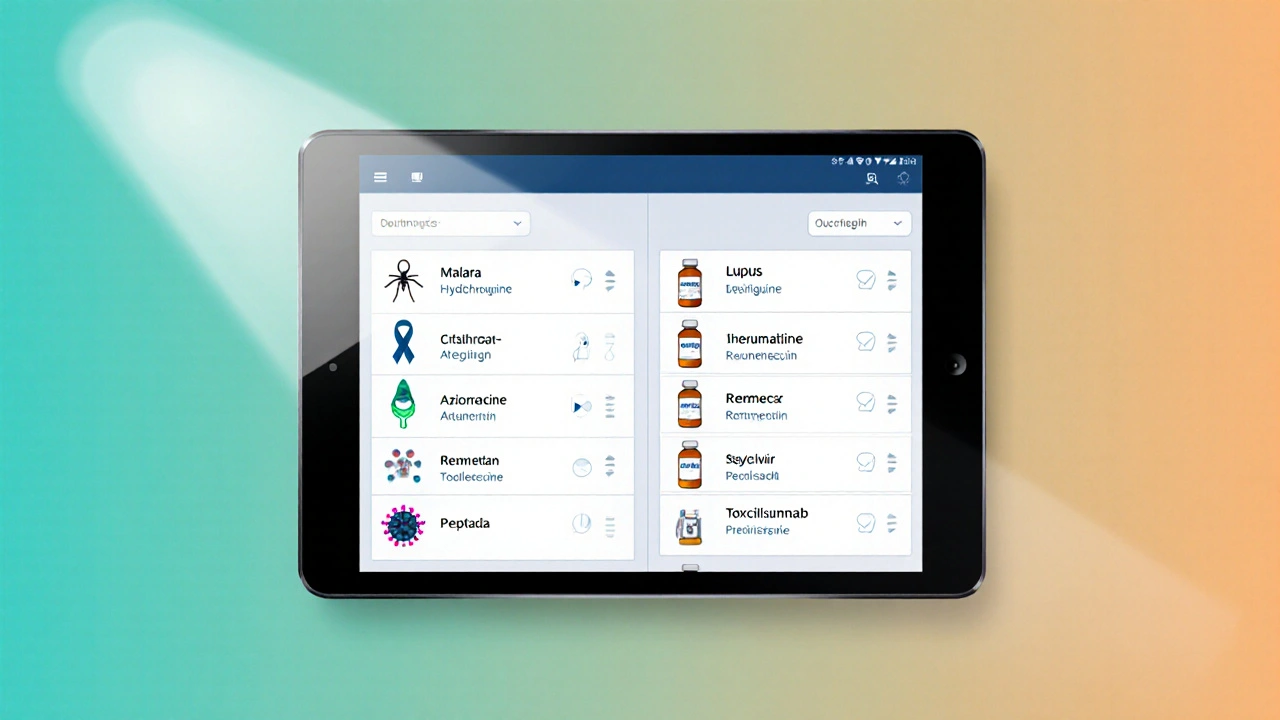Hydroxychloroquine — What it is and when people use it
Hydroxychloroquine is a prescription medicine first used for malaria that’s now common for autoimmune conditions like lupus and rheumatoid arthritis. You might have heard its name in the news — that stirred public interest — but for most people it’s a long‑term immune‑modifying drug taken under medical supervision. This page gives clear, practical facts so you know what to ask your doctor and how to stay safe.
Common uses, typical treatment approach
Doctors prescribe hydroxychloroquine mainly for lupus and rheumatoid arthritis to reduce flares and joint pain. Doses vary by diagnosis and body weight, so follow your prescriber's instructions — don’t copy doses from someone else. It can take several weeks to months to see the full benefit when used for autoimmune disease.
For malaria, hydroxychloroquine is used both to treat and prevent infection, but which drug and dose depends on the trip location and resistance patterns. Always get travel medicine advice before using it for prevention.
Safety, side effects, and what to watch for
Most people tolerate hydroxychloroquine well, but it can cause side effects. Common ones include nausea, stomach upset, headache, and skin rash. More serious issues are less common but important: long‑term use can affect the eyes (retinopathy), and it can rarely affect the heart rhythm (QT prolongation), especially when taken with other medicines that affect the heart.
Before starting hydroxychloroquine, doctors usually recommend a baseline eye exam. If you have heart disease, low potassium or magnesium, or take other QT‑affecting drugs, your provider may order an ECG. Pregnant or breastfeeding people should discuss risks and benefits with their clinician — hydroxychloroquine is sometimes used in pregnancy for autoimmune disease, but that decision needs a doctor’s guidance.
If you notice sudden vision changes, new chest pain, palpitations, severe muscle weakness, or allergic reactions (fever, swelling, trouble breathing), stop the medication and seek medical care right away.
There was a lot of research into hydroxychloroquine for COVID‑19. High‑quality trials did not show clear benefit for routine COVID treatment or prevention and regulators issued warnings about off‑label use without supervision. Always follow current medical guidance and your clinician’s advice.
Thinking of buying hydroxychloroquine online? Only get it with a valid prescription from a licensed pharmacy. Beware of unverified online sellers or sites that don’t require a prescription — those products can be counterfeit or unsafe. Check the pharmacy’s credentials, read reviews, and confirm shipping rules to your country. If cost is a concern, ask your doctor about patient assistance programs or generic options; hydroxychloroquine sulfate is commonly available as a generic.
Want specific help? Talk to your pharmacist or prescriber about dosing, monitoring plans, and drug interactions before starting hydroxychloroquine. That simple conversation cuts risk and keeps treatment working as it should.

A practical, side‑by‑side comparison of Hydroxychloroquine and its main alternatives, covering uses, safety, cost, and when each drug is the right choice.
Chris Gore Oct 2, 2025
This article delves into seven alternatives to Hydroxychloroquine, offering insights into their pros and cons for those seeking different treatment options. It provides a practical guide for understanding the benefits and limitations of each alternative medication, complemented by a summary comparison in tabular format. Readers will find the information concise yet comprehensive, aiding them in making informed decisions.
Chris Gore Jan 30, 2025



